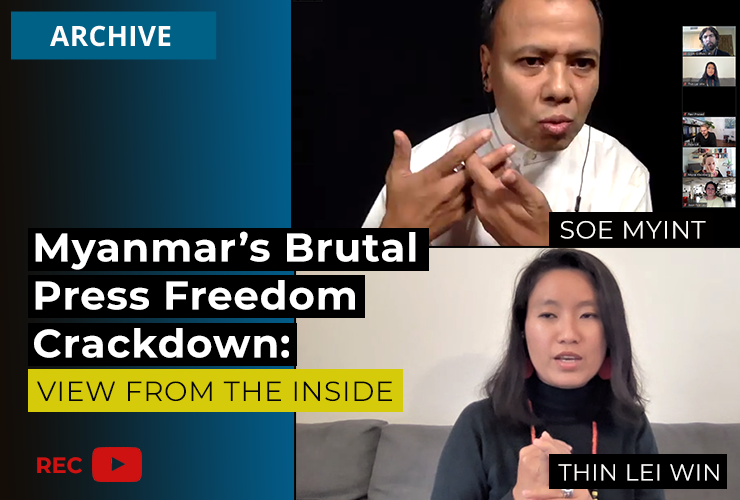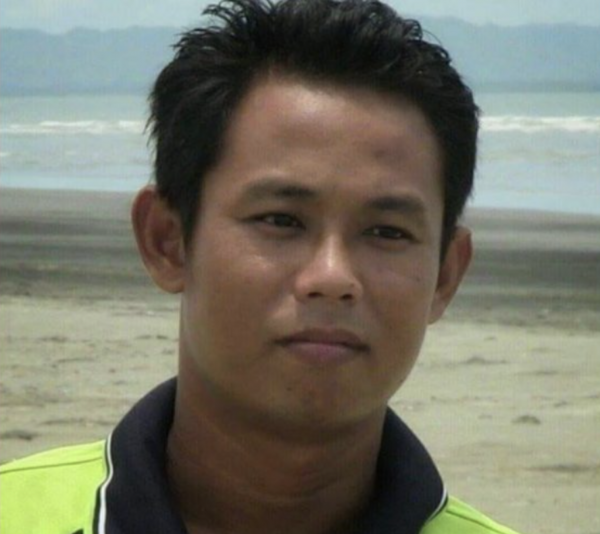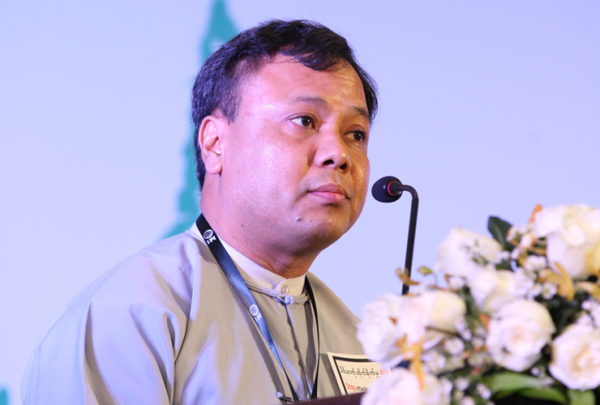A little more than three months have passed since the military seized power in Myanmar at the beginning of February. To stifle protests and silence criticism, the military junta has intensified its crackdown on independent media outlets and journalists. For local journalists every day is a fight for their lives as well as for freedom of speech.
“We are seeing a more and more brutal crackdown and tactics and techniques by the military regime in suppressing the people, particularly those who speak out against the military regime, those who speak out for freedom and democracy”, Soe Myint, the editor-in-chief Myanmar-based Mizzima Media Group and an International Press Institute (IPI) member, said at a special IPI press briefing on May 6 to mark World Press Freedom Day.
Soe Myint said that, despite the extreme threat, Myanmar’s journalists were still dedicated to doing their jobs.
“We have been continuously, without interruption, broadcasting and publishing since the military coup day. Likewise, many of our colleagues are risking their lives every day and continue to report and publish independent news and information about the country and what is happening in the country.”
Arrests grow
During the past three months, numerous journalists in Myanmar have faced physical attacks, harassment and intimidation. At least 80 journalists have been arrested and as of the beginning of May as many as 45 of them were still behind bars.
Last week, Japanese journalist Yuki Kitazumi became the first foreign journalist to be charged under the draconian Article 505 of Myanmar’s criminal code for spreading “false” news. The same code has been used against many other media workers as well.
“And these are just the cases that we know about. I’m sure there are so many other cases that we don’t know about, particularly in ethnic areas”, Myanmar freelance journalist Thin Lei Win said.
The regime has also tried to limit the free flow of news by revoking the licenses of multiple independent media houses. For example, Mizzima’s license was revoked in March together with four other outlets.
Despite the ban, Mizzima is still continuing its news production via its website and social media. But it hasn’t been easy as the military has imposed frequent restrictions on the internet and banned satellite television dishes, which many outlets have used to continue their broadcasting.
Low profile
Since the very beginning of the coup many journalists have been forced to keep a low profile and many of them have not been able to sleep a single night at home or meet their family members since February, Thin Lei Win said.
“They can go into hiding. They can find a safe house. But what about their families? (…) If they can’t find you, they can take your family members. They can take your siblings, they can take your parents, they can take your children”, she said. “There is absolutely no ethical or moral line. It’s difficult not just in terms of operating a newsroom, but there’s also a heavy personal load to the journalists.”
Soe Myint says that most of the Mizzima’s journalists had fled from Yangon, the country’s largest city, to feel safer. The media house is currently operating from different part of the country. Some of the journalists have also exiled to neighbouring countries. “Of course, it is not easy”, Soe Myint said from his makeshift studio with a deep black background. “We are trying to do our best to make sure that we keep our professionalism as best as possible.”
Both Soe Myint and Thin Lei Win believe that following the military coup, the public realized the importance of journalism and are coming forward to support media outlets. “They’ve become so much more aware of the kind of situations journalists have to go through. And the other side is that they are also now realizing that the military is propaganda”, Thin Lei Win said. “There is this big transformation that is happening within the society because of that inhumane treatment.”
‘Democracy will prevail’
Soe Myint and Thin Lei Win were hesitant to speculate about the future. “The struggle will continue at least for the near future. Of course, democracy will prevail, and the fight will be there, but the people will succeed. I have no doubt about that, but it will take time. It will not be easy”, Soe Myint said.
Thin Lei Win said that one of the most important ways to help the people in Myanmar right now was to share information as widely as possible. “Please continue talking about Myanmar. Please continue talking about it among your friends. Please educate people who may not know what is happening. If you can spend a bit more than that, please support independent media in Myanmar.”



